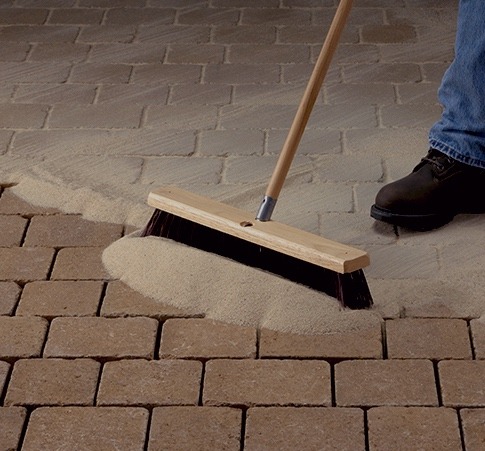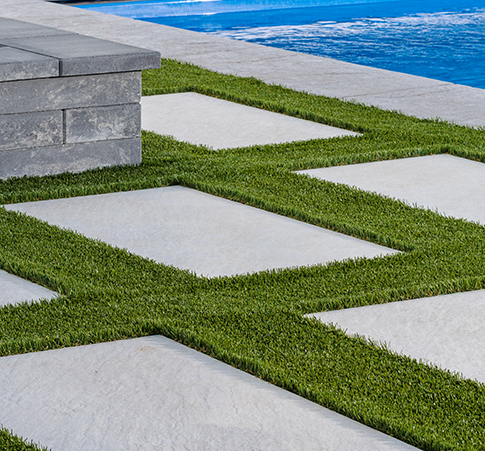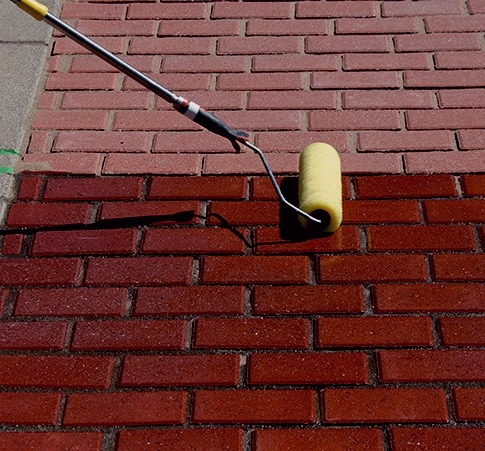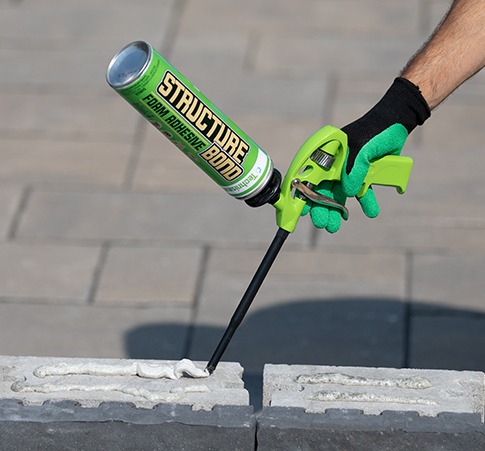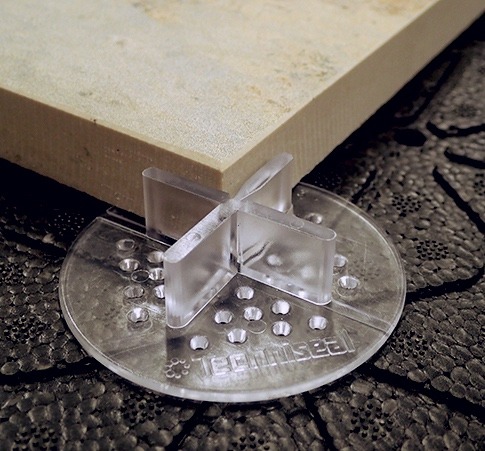5 Tips For Concrete Paver Clean 'N' Seal
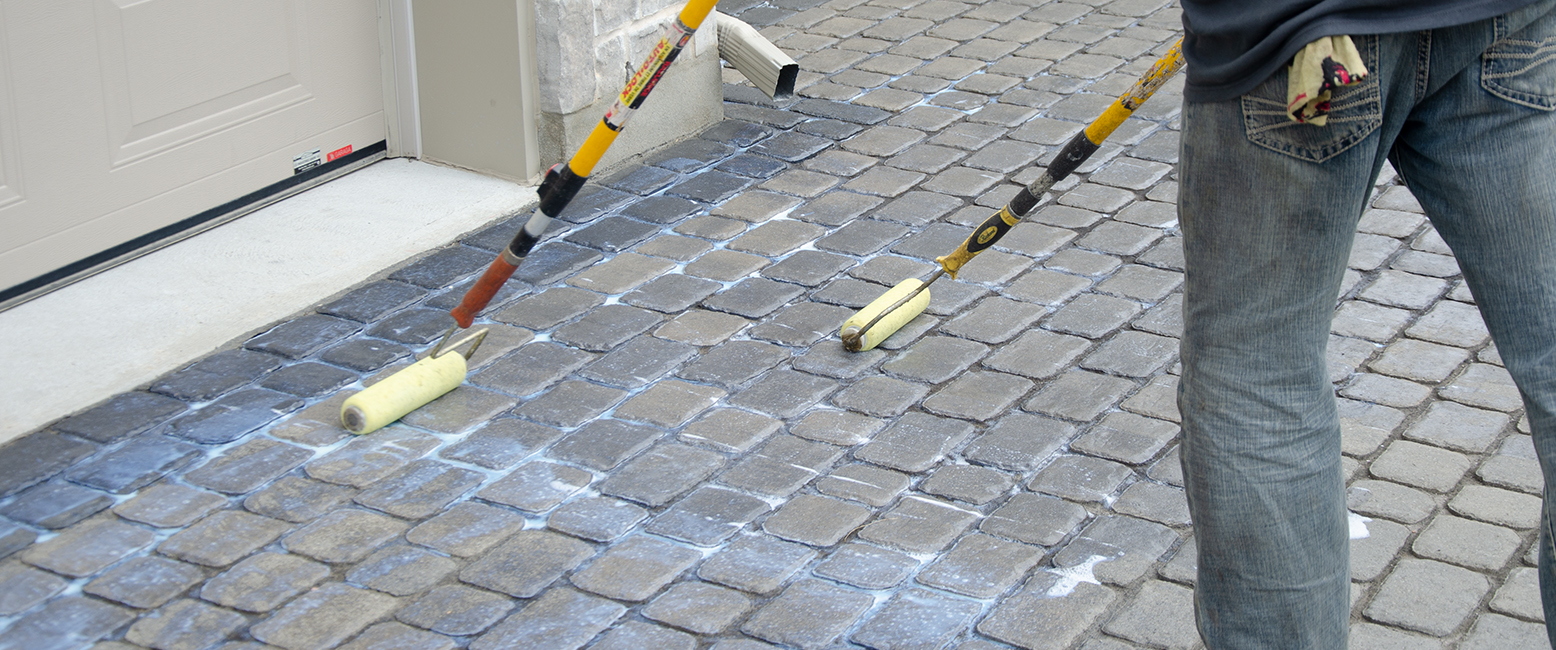
Concrete pavers have become a valued part of today’s urban landscapes.Whether they’re laid around the pool, in front of the house or along a discreet pathway, they are a great way for homeowners to bring a distinguished look to their property. Durable, they can last a lifetime when properly taken care of.
This is precisely why no paver job should ever be considered complete before it is properly cleaned and sealed. Your work might look good once installation is complete, but a great part of your reputation as a hardscape professional depends on how it will bear the weight of time.
In this article, our sealing experts answer 5 frequently asked questions about the ‘’clean n’ seal’’ business.
When should you seal recently laid concrete pavers?
This is usually among the first questions asked during workshops of our Technical Training Program. Even though paver experts used to wait up to a year after installation before sealing a job, this is no longer necessary. It is recommended to wait between 60 and 90 days after pavers were laid to clean and seal them. By doing so, your installations can experience a full weather-cycle that will allow any naturally occurring efflorescence to emanate from the pavers.
Waiting for at least 2 months before sealing a job will also enable your installation to reach optimal joint stabilization levels.
Is surface preparation really necessary before sealing concrete pavers?
There’s no avoiding it!
Surface preparation is the only way to guarantee the best possible end results when sealing pavers. Any visible cleaning imperfection cannot be hidden by a sealer.
The first step of a proper surface preparation is to remove of any noticeable stain from the surface of pavers. Techniseal offers a wide range of specialized removers that will overcome any type of stain. From our highly performant Organic Stain Remover to our Professional-grade Oil and Grease Remover, Techniseal has the product you need!
Then, about 24 hours prior to sealant application, thoroughly cleanse pavers of any remaining residue with Techniseal’s Paver Prep, a powerful efflorescence cleaner that will give you a nice clean surface on which to work. Our paver preparator also maximizes sealant penetration and adherence.
Which tools are required for the successful sealing of a paver surface?
To seal pavers, contractors can rely on two different methods: roller or sprayer. In the end, both process can achieve similar results. The major difference is that the sprayer will require more preparation time. However, time spent on preparing the sprayer might prove to be quite beneficial, as application time is greatly reduced by spraying the product on large surfaces instead of rolling it on.
Whatever you choose, the most important thing to keep in mind when sealing pavers is reaching the saturation point. To saturate the surface, apply sealant generously and wait 4-5 minutes for the product to be absorbed. Do so until a small portion of sealant remains at the surface : this means the saturation point has been attained. To finish things off, simply remove excedents by ‘’backrolling’’ over remaining product.
I messed up! Can I put on a second coating?
Nobody is above making a mistake and hardscape experts are no exception. Should you realize that end results don’t match up to your expectations, the temptation could be strong to throw on a second coating to try to even things out. Unfortunately, sealing pavers isn’t like painting a wall, touch ups may be very hard to do once the initial coat is dry.
Stripping pavers is expensive and can be damageable to the environment. It should only be considered as a last resort. If you ever run into problems, Techniseal has a team of experts that can advise you on the best course of action to take.
You can contact them at 1 800 465 7325.
Once you’ve reached out to them, they can help you in assessing the situation and choosing the right thing to do next.
Should I do annual touch-ups to keep pavers well protected?
High-quality products like Techniseal’s paver protectors are designed to provide long-lasting protection to your installations. If the sealant is applied right the first time around, annual touch-ups aren’t necessary.
As a matter fact, adding on more sealant each year could prove to be detrimental to the durability of your work, as it could cause a phenomenon called delamination, a visible fading out of the colors in pavers. All Techniseal protectors are fit to last at least 2 years and require nothing more than limited annual maintenance.
Each spring, rinse the surface with strongly diluted efflorescence cleaner to remove any stains or organic residues and that should do the trick!
When properly taken care of, pavers can go five years before they need a complete resealing.
Paver Sealing : Summing things up
When it comes to paver sealing, Techniseal is without a doubt your best option!
From our professional-grade HD Paver Prep to our numerous specialized cleaners and removers, we have everything you need to deliver high-end results on every job you take on. With the right tools, the right products and the right techniques, sealing could prove to be a very lucrative business opportunity.
Reach out to your local Techniseal representative for any question regarding our paver care product line. By choosing our brand, you get the peace of mind of knowing you’re working with the best products in the business, and that paver sealing experts are just a phonecall away from helping you get out of any bad situation.
STILL GOT QUESTIONS ABOUT PAVER SEALERS?
Our technical support team is there to give you all the answers!
Simply reach out to them by dialing 1 800 465 7325 or by sending them an email at service@techniseal.com
You can also fill-out our website contact form.







